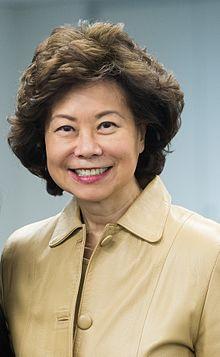The Other Big Hearings This Week: ATC Reform Hearings Bring Tension Before Comey Hearing

By Olivia Grady
While the Comey hearing has gotten most of the attention this week in Washington, there were two other important hearings on air traffic control reform.
On June 7, 2017, Secretary of Transportation Elaine Chao testified before the U.S. Senate Committee on Commerce, Science & Transportation. The hearing was called “FAA Reauthorization: Administration Perspectives.”
Secretary Chao gave a brief statement about how the air traffic control system needed to be reformed because it is outdated. She described the inefficiencies resulting from old technology and how a nonprofit organization would be able to introduce new technology more quickly to this system. Secretary Chao also mentioned in her prepared statement that drones and other new technology need to be integrated into the current system, but the Department of Transportation and the FAA are unable to do this.
Senate Republicans and Democrats were surprisingly hostile to the Administration’s proposal. They shared their concerns about how the plan would affect rural communities, specifically contract towers. Secretary Chao answered this concern by explaining that the nonprofit organization would have more stable funding so contract towers would be less affected by budget cuts.
Interestingly, labor issues involved in this proposal weren’t discussed. Secretary Chao briefly stated in her opening that labor contracts would remain the same even though the workers would no longer be federal employees. She also said that the Board running this nonprofit would be chosen in part by NATCA.
Following her Senate hearing, Secretary Chao next testified about this issue before the House Committee on Transportation & Infrastructure on June 8, 2017. The hearing was called “Building a 21st Century Infrastructure for America: Federal Aviation Administration Authorization.”
Secretary Chao discussed similar proposals in her opening before the House Committee as before the Senate Committee. She, however, emphasized that the airlines would not control the Board, a question brought up several times during the Senate hearing.
The reception Secretary Chao received from the House Committee members was mixed. Some Congressmen seemed likely to support the plan, given their compliments of her and their questions. Others were still concerned about turning the system over to a private company and not receiving compensation for it. They were also worried about the contract towers and who was on the Board, especially how many members of the Board the airlines would choose. Secretary Chao tried to assuage these fears by explaining the makeup of the Board and the need for this new system.
Unlike the Senate hearing, however, there were some questions about labor. Congressman Dan Lipinski (D-IL), for example, asked if the labor contracts could be changed for new employees. Secretary Chao answered that it was possible. Congressman Albio Sires (D-NJ) asked if any union member jobs would be lost in the transition, and Secretary Chao said no. Finally, Congressman Scott Perry (R-PA) asked about raising the monetary threshold for the Davis-Bacon prevailing wage requirements. The Secretary responded by saying that the issue was for the Department of Labor, but that the requirements were included in the proposal to gain bipartisan support.
Chairman Bill Shuster’s (R-PA) committee had already produced the Aviation Innovation, Reform, and Reauthorization Act of 2016 and is likely reworking the bill with Administration input.





